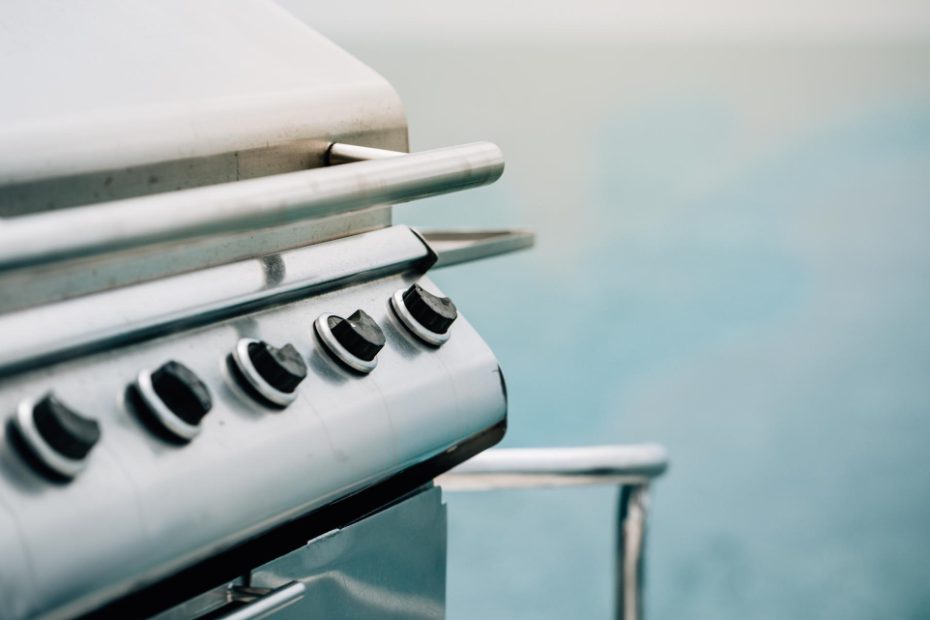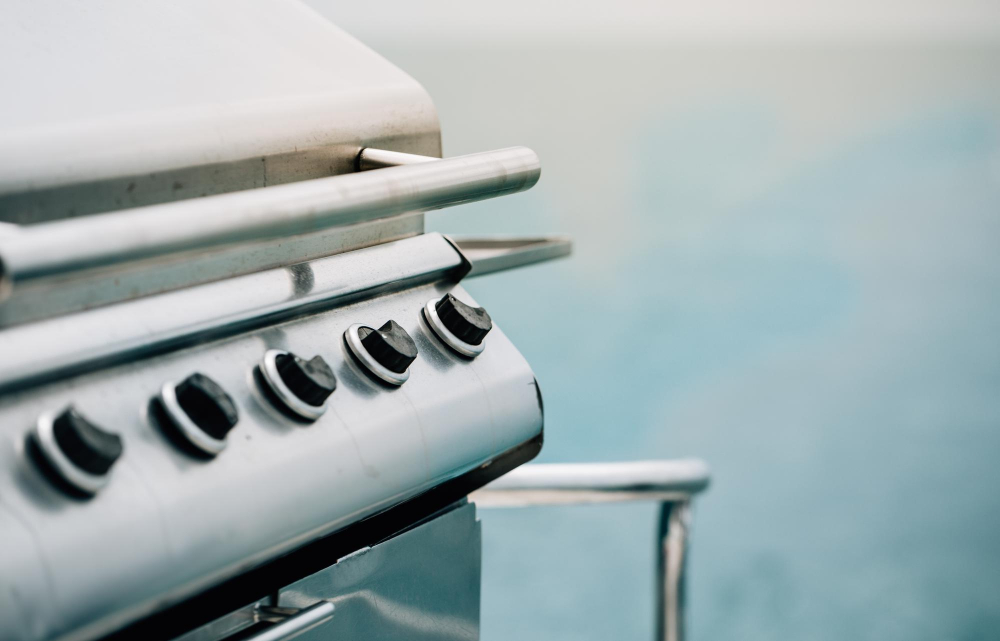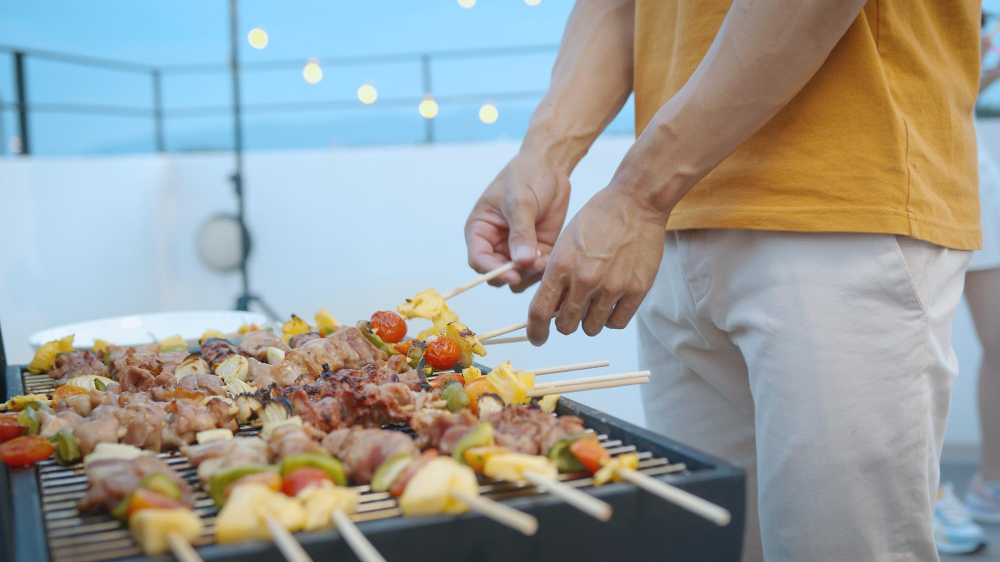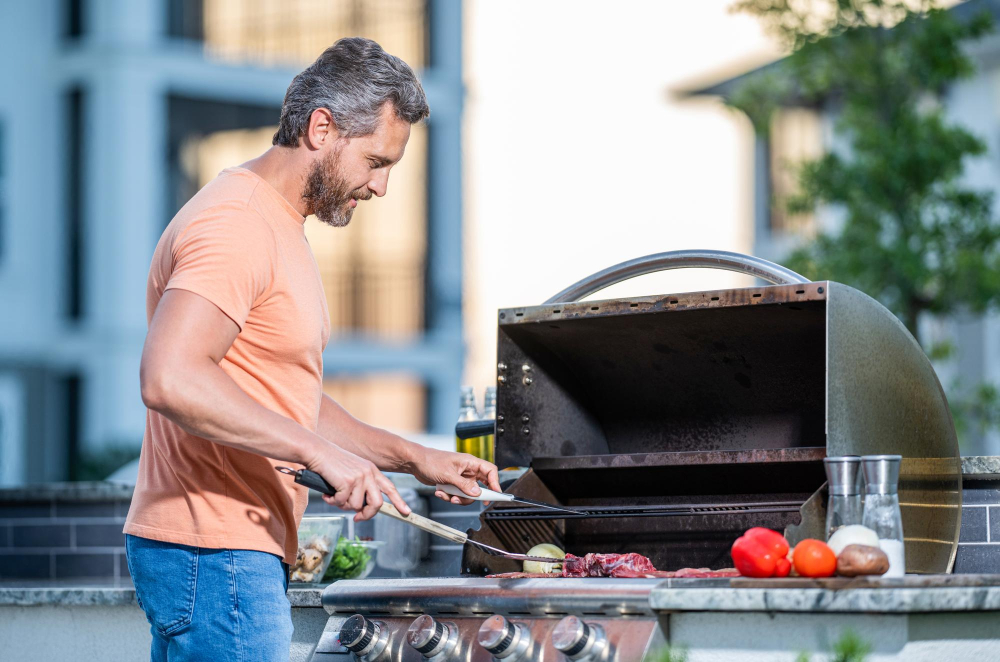Why are Weber grills so popular?
Weber grills have become a household name in the UK, capturing the hearts of both amateur and seasoned grill enthusiasts. With their commitment to quality, innovation, and exceptional cooking performance, it is no wonder why Weber grills have achieved such popularity.
The Weber Legacy
The story of Weber grills began over 65 years ago when George Stephen Sr., a metalworker and passionate griller, created the first kettle-shaped barbecue. This innovative design not only revolutionized the way people grilled but also set the foundation for the brand’s success.
Since then, Weber has continued to push the boundaries of grilling technology, constantly introducing new features and improvements to enhance the grilling experience. Whether it’s their iconic kettle grills, gas grills, or smokers, Weber has consistently delivered high-quality products that stand the test of time.
Durable Construction
One of the key reasons why Weber grills are so popular is their exceptional build quality. From the materials used to the attention to detail in construction, Weber grills are built to last. The brand prides itself on using premium-grade steel, porcelain enamel, and other high-quality components.
This durability not only ensures a long lifespan for the grill but also contributes to its outstanding performance. Weber grills are known for their even heat distribution, precise temperature control, and overall cooking efficiency. Whether you’re searing steaks, smoking ribs, or grilling vegetables, Weber grills consistently deliver delicious results.
Wide Range of Options
Weber understands that every griller has different needs and preferences. That’s why they offer a wide range of grill models to suit various lifestyles and budgets. Whether you’re looking for a compact grill for apartment balconies or a large, feature-packed grill for entertaining guests, Weber has you covered.
Their product lineup includes charcoal grills, gas grills, portable grills, and even electric grills, providing options for every type of grilling enthusiast. With a Weber grill, you can find the perfect fit for your outdoor cooking needs.
Superior Customer Support
In addition to their exceptional products, Weber is renowned for its customer support and after-sales service. Weber’s commitment to customer satisfaction extends beyond the purchase. They provide extensive resources, including cooking tips, recipes, and maintenance guides, to help users get the most out of their grills.
Moreover, Weber’s warranty policies ensure peace of mind for consumers. With industry-leading warranties, they demonstrate their confidence in the durability and performance of their grills.
“Weber grills offer more than just a means of cooking food; they provide an immersive grilling experience that brings people together.”
Whether it’s a weekend barbecue with friends or a family gathering, Weber grills create lasting memories around delicious meals.
With their rich legacy, durable construction, wide range of options, and superior customer support, it’s no wonder why Weber grills have become so popular in the UK. They have mastered the art of grilling, making it accessible and enjoyable for everyone, and their commitment to quality and innovation continues to earn them the loyalty of grill enthusiasts across the country.
What is the difference between Weber Q and Baby Q?
If you’re in the market for a portable grill, you may have come across two popular options: Weber Q and Baby Q. While both grills are produced by the renowned grill manufacturer Weber, they do have some differences that may influence your buying decision.
Size and Portability
One of the main differences between Weber Q and Baby Q is their size. The Weber Q is larger and comes in various sizes ranging from the compact Q1000 to the spacious Q3200. On the other hand, the Baby Q is smaller and designed specifically for on-the-go grilling.
The Weber Q is better suited for individuals who need more cooking space or plan to frequently grill for larger groups. Its larger size also means it may require more storage space when not in use. Conversely, the Baby Q is ideal for those who prioritize portability. It’s lightweight, compact, and perfect for camping trips or picnics.
Cooking Performance
Both the Weber Q and Baby Q offer excellent cooking performance, thanks to their high-quality construction and innovative features. However, there are a few differences in their specifications that may impact the cooking experience.
The Baby Q generally has a lower BTU (British Thermal Unit) rating compared to the Weber Q models. This means that the Baby Q may take slightly longer to heat up and may not reach the same high temperatures as the larger Weber Q grills. However, it still provides sufficient heat for grilling and offers precise temperature control.
Additional Features
When it comes to additional features, both the Weber Q and Baby Q have similar offerings but with some variations.
The Weber Q models typically include features such as folding side tables, built-in thermometers, and tool hooks. These features add convenience and functionality to your grilling experience. The Baby Q, being more compact, may not have as many additional features but still provides a reliable grilling experience.
“With its larger cooking surface and extra features, the Weber Q is perfect for hosting barbecues in your backyard, while the Baby Q is great for on-the-go grilling adventures.” – Grill Enthusiast Magazine.
If budget is a consideration, the Baby Q is generally more affordable than the Weber Q models, making it a great choice for those looking for a portable grill on a budget.
In conclusion, the difference between Weber Q and Baby Q comes down to size, portability, cooking performance, and additional features. Each grill offers its own unique advantages, so it’s important to consider your specific needs and preferences when making a decision.
Do Weber grills get hot enough?
When it comes to grilling, one of the most common concerns is whether the grill can get hot enough to cook food thoroughly and give it that deliciously charred flavor. Weber grills have long been a favorite among grill enthusiasts, but do they really get hot enough? Let’s dive in and find out.
Temperature range
Weber offers a wide range of grills, from small portable options to large, high-end models. The temperature range of Weber grills can vary depending on the specific model. However, most Weber grills are capable of reaching temperatures above 500°F (260°C). This is well within the ideal range for searing and cooking various types of meat, fish, and vegetables.
Heat distribution
One of the reasons why Weber grills are highly regarded is their excellent heat distribution. Weber designs their grills with precision to ensure even heat distribution across the cooking surface. This means that every part of the grill gets hot enough to cook the food consistently, preventing any hot or cold spots.
Cooking performance
In terms of cooking performance, Weber grills excel in providing consistent and reliable heat. With their high-quality materials and engineering, Weber grills not only get hot enough but also hold their temperature well, even in colder climates. This makes them suitable for year-round grilling in the UK.
Beyond temperature: Flavor and versatility
While getting a grill hot enough is important, it’s also worth considering other factors that contribute to a great grilling experience. Weber grills are known for their ability to impart a smoky flavor to food, thanks to their effective airflow control and the use of charcoal or wood pellets. Additionally, Weber grills offer versatility, allowing you to experiment with different cooking methods such as direct grilling, indirect grilling, and smoking.
So, whether you’re cooking a perfectly seared steak or slow-smoking a rack of ribs, Weber grills can definitely get hot enough to achieve delicious results. Their temperature range, heat distribution, and overall cooking performance make them a popular choice among grill enthusiasts in the UK and around the world.
Why is Napoleon better than Weber?
Introduction
In the world of grilling enthusiasts, two popular brands often come up in conversation: Napoleon and Weber. Both are known for their quality and performance, but when it comes down to it, there are several reasons why Napoleon stands out as the better choice.
Quality and Durability
Napoleon grills are built to last. Their attention to detail and use of high-quality materials ensure that their products can withstand the test of time. From stainless steel burners to cast iron cooking grids, Napoleon grills are designed to handle even the toughest grilling tasks. Weber, on the other hand, while also known for its durability, often falls short in terms of materials and construction in comparison.
Performance
When it comes to performance, Napoleon grills take the lead. Their advanced features, such as infrared searing burners and integrated smoking trays, provide unmatched versatility and precision. Whether you’re searing a steak or slow-cooking a rack of ribs, Napoleon grills offer superior heat distribution and control, allowing you to achieve restaurant-quality results every time.
Variety of Options
Napoleon offers a wide range of grill models to choose from, catering to different needs and budgets. Whether you’re looking for a compact portable grill or a luxurious built-in model, Napoleon has you covered. Weber, while also offering a decent variety, doesn’t quite match the extensive selection provided by Napoleon.
Customer Satisfaction
One of the best ways to gauge the quality of a brand is through customer satisfaction. Napoleon consistently receives positive reviews from customers who praise their product performance, durability, and exceptional customer service. While Weber has a loyal following, Napoleon’s commitment to customer satisfaction sets them apart.
“Choosing a Napoleon grill not only means investing in a high-quality product but also gaining access to a community of passionate grillers who share their tips and recipes.” – John, a satisfied Napoleon grill owner.
In conclusion, while Weber grills are certainly reliable and have their merits, Napoleon stands out as the better choice for those seeking top-notch quality, unparalleled performance, a wide range of options, and excellent customer satisfaction. So, if you’re in the market for a new grill, consider Napoleon and elevate your grilling experience to the next level.
How to Get Better Crackling on Your Weber Q
If you own a Weber Q and love the crispy, crunchy goodness of crackling, you’re in luck. With a few simple tips and tricks, you can achieve perfect crackling every time. Here’s how:
1. Choose the Right Cut of Pork
To get the best crackling, you need to start with the right cut of pork. Opt for cuts with a good layer of fat and skin, such as pork shoulder or pork belly. The fat is what gives crackling its delicious texture and flavor.
2. Score the Skin
Scoring the skin helps the fat render and the skin crisp up. Use a sharp knife to make shallow, even cuts across the skin, being careful not to cut into the meat. This will allow the heat to penetrate the skin and create those perfect crackling bubbles.
3. Dry the Skin Thoroughly
Moisture is the enemy of crackling, so it’s important to dry the skin thoroughly before cooking. Pat the skin with paper towels to remove any excess moisture and leave it uncovered in the fridge for a few hours or overnight. This will help the skin dry out and result in better crackling.
4. Preheat Your Weber Q
Before you start cooking, make sure your Weber Q is preheated to a high temperature. This will help to sear the skin and lock in the moisture, ensuring that your crackling is crispy on the outside and tender on the inside.
5. Season the Skin
While the Weber Q is heating up, take the opportunity to season the skin. Rub a mixture of salt, pepper, and your favorite herbs or spices into the cuts you made earlier. This will enhance the flavor of the crackling and add a delicious aroma to your dish.
6. Cook Low and Slow
Once your Weber Q is hot and ready, it’s time to start cooking. Place the pork with the skin side up on the grill and cook it low and slow. This will allow the fat to render gradually, resulting in tender meat and crispy crackling. Aim for a temperature of around 160-180°C.
7. Monitor the Cooking Process
Keep a close eye on the pork as it cooks. If you notice the crackling starting to burn, move it to a cooler part of the grill or lower the heat. You want the crackling to be golden brown and bubbly, not charred.
By following these simple steps, you’ll be able to achieve better crackling on your Weber Q every time. So fire up your grill, grab a cold drink, and get ready to enjoy some mouthwatering crackling!



